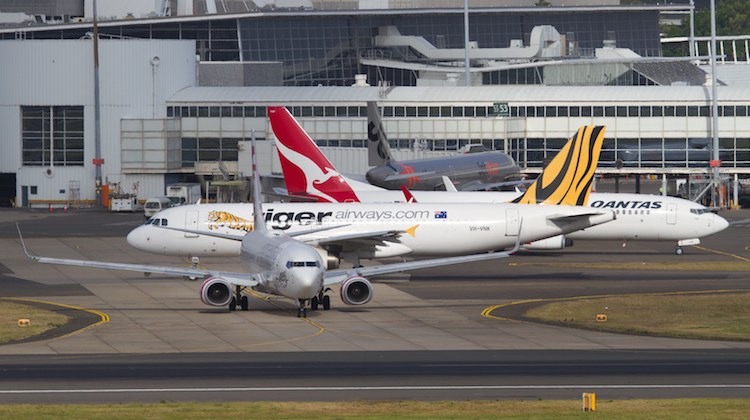
Domestic economy airfares edged marginally higher in April while business class tickets were a touch lower, new figures show.
The Bureau of Infrastructure, Transport and Regional Economics (BITRE) measure of domestic business class airfares was at 94.1 index points in April, down slightly from 94.4 points a year earlier.
Meanwhile, the restricted economy index was at 80.4 points, up from 79.2 points in April 2016.
And the best discount economy index rose to 59.8 points, compared with 58.4 point in the prior corresponding period.
The BITRE air fare series is a price index of the lowest available fare in each fare class, weighted over selected routes.
Both Australia’s major carriers Virgin and Qantas have cut domestic capacity in recent times in an effort to improve yields and better match the number of seats in the market with demand.
Indeed, figures from the International Air Transport Association (IATA) said demand in the Australian domestic market had gone backwards in the first two months of 2017, with revenue passenger kilometres (RPK) down 0.8 per cent amid a 1.6 per cent reduction in capacity measured by available seat kilometres (ASK).
With capacity being cut more than demand, load factors were up 0.6 percentage points to 75.4 per cent.
“Domestic Australia RPKs barely grew in year-on-year terms once you adjust for the leap year effect, and traffic is trending sideways in SA (seasonally adjusted) terms,” IATA said in air passenger market analysis for February.
“That said, capacity growth has remained constrained too, which has helped to support loads.”




